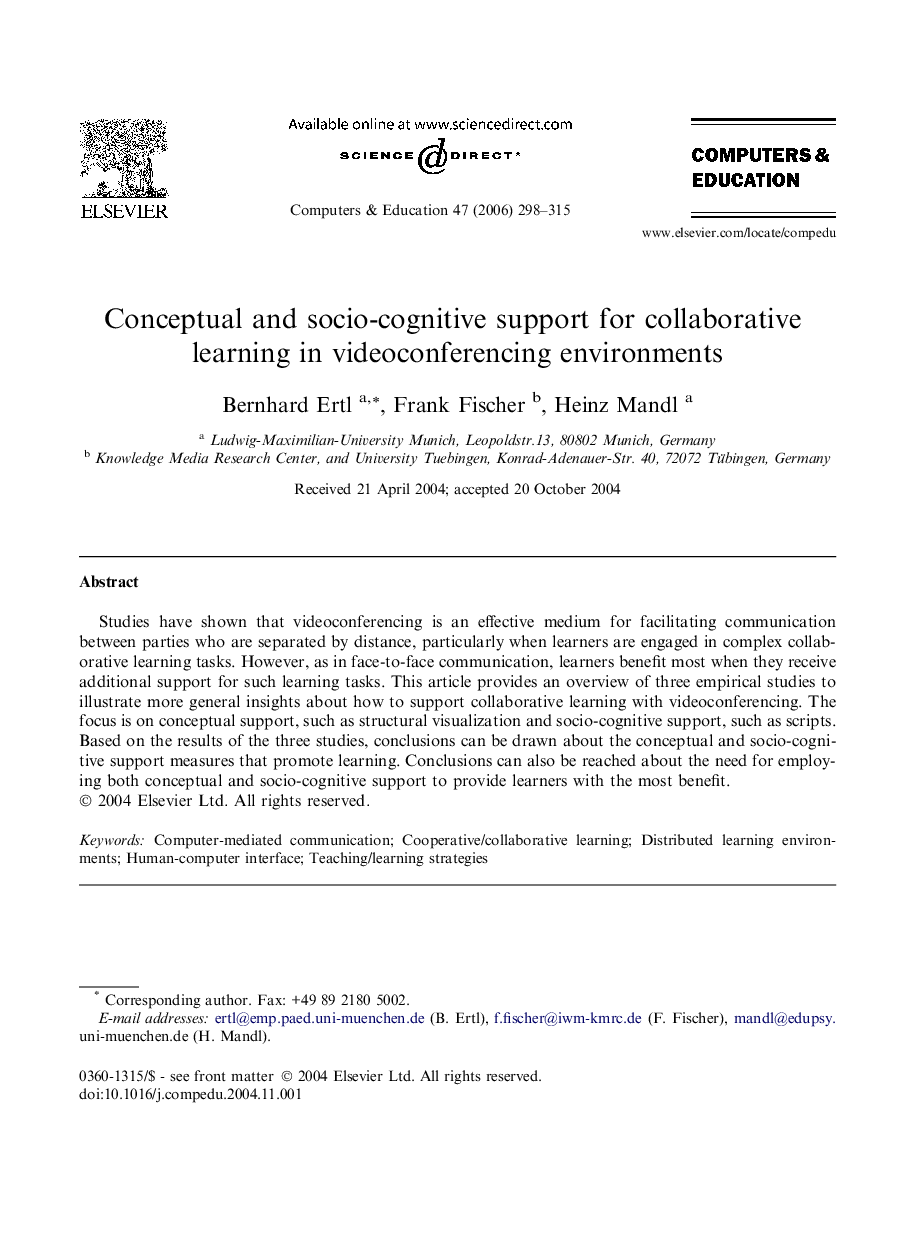| Article ID | Journal | Published Year | Pages | File Type |
|---|---|---|---|---|
| 350063 | Computers & Education | 2006 | 18 Pages |
Studies have shown that videoconferencing is an effective medium for facilitating communication between parties who are separated by distance, particularly when learners are engaged in complex collaborative learning tasks. However, as in face-to-face communication, learners benefit most when they receive additional support for such learning tasks. This article provides an overview of three empirical studies to illustrate more general insights about how to support collaborative learning with videoconferencing. The focus is on conceptual support, such as structural visualization and socio-cognitive support, such as scripts. Based on the results of the three studies, conclusions can be drawn about the conceptual and socio-cognitive support measures that promote learning. Conclusions can also be reached about the need for employing both conceptual and socio-cognitive support to provide learners with the most benefit.
